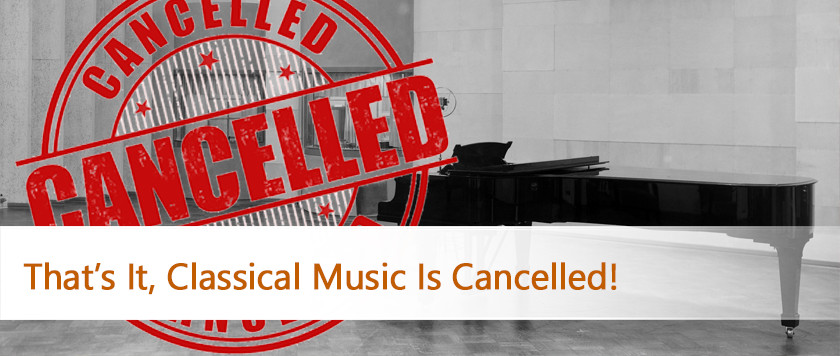“Well if that’s your story, then classical music is cancelled!” That what I would jokingly say every time someone would say, “Nobody knows or even cares there is an orchestra in our city. Nobody understands us or our worth.” It’s a common sentiment shared by many people in orchestras all over the country. Upon reading the April issue of Entrepreneur I found a very similar phrase in the editor’s note aimed at business professionals.
Amy Cosper, Editor in Chief of Entrepreneur said in her note, “One of the most frequent comments I hear is: People just don’t understand us, our value and what we do, but we are absolutely the best at it. That statement is a problem….If you ever catch yourself making that sort of statement, take a step back. Because it is total BS.”
How do orchestras make themselves and their value heard, seen, and understood? Having a logo and concise website is a good start, but ultimately it’s a narrative, a story, that has the most power to capture attention and hearts. And with social media, the time has never been better to get that narrative out there.
Creating a narrative comes with a big asterisk. Whether it’s a for-profit group or non-profit group, people’s short attention spans don’t discriminate. You have about 15 seconds to grab someone’s interest and just a few short seconds more to get to the point. And it has to be immediately compelling and relatable.
As important as stories are to create awareness about a group or subject, most of orchestras out there are weak storytellers. Their messages tend to be diluted or worse, fail to deliver concise points. Online promotional videos or television commercials often overload the viewer with too much information or laborious and verbose topics that ultimately bores the target audience.
While orchestras try to share what they can about education, entertainment, and culture, the huge thing lacking is a story arc and tension to draw people in. It brings to mind the old saying in the comedy improv world, “bring a brick, not a cathedral.”
People have to care about and identify with what’s going on in any story to make it effective. As obvious as that may sound, there is scientific evidence that proves why this is important. Neuroscientist Dr. Paul J. Zak discovered that when people get drawn into a gripping narrative, the brain synthesizes oxytocin, affecting people’s attitudes, beliefs, and behaviors.
Dr. Zak’s entire study is fascinating and I encourage you to read the entire research article. And an additional feature article about how stories change the brain here. Briefly summing up Dr. Zak’s findings, when participants of his experiments were shown compelling stories on a video and asked if they’d like to donate to the organization the video was about, donations were 261 percent higher than when the oxytocin was not released.
The power of storytelling should not be underestimated. If more orchestras created a succinct, yet compelling dramatic narrative, they would most certainly find what Dr. Zak found: generous, charitable, and compassionate people who suddenly care a great deal more after a captivating story.











Your attitude is fantastic and contagious! It’s common knowledge that artists and composers always struggle to demonstrate their value. How much did Mozart, Beethoven, and Brahms have to struggle before they made their mark on the world? This isn’t a new problem! The struggle makes the artist.
When I read this article a couple weeks ago it made me think about the orchestra I work for and what our community values. In a small west-Texas town, many people value tradition and history. We have over fifty years of recordings sitting in our office, so we set out to organize and archive them–they are, quite literally, the “narrative” of our orchestra. History is such a powerful narrative! With a bit of follow-through we can help connect our audience with the history and memories that keep them coming back year after year in spite of the provocatively titled news articles.
I’m with you. Let’s roll up our sleeves and stop complaining!